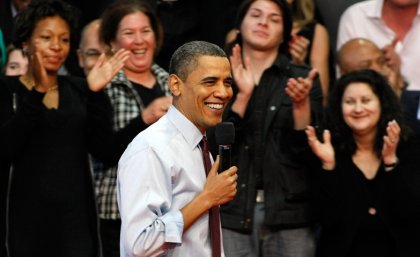
Employees and group members respect leaders who embody the goals of the team, according to new research from The University of Queensland.
This conclusion challenges the common belief that the best way to build bonds between employees and bosses is to engage in social activities – like the recent round of work Christmas parties – said Dr Nik Steffens from UQ’s School of Psychology.
“Our research shows that although some people have strong personal bonds with their leaders, many don’t,” Dr Steffens said.
“Surprisingly though, the basis for this sense of closeness proves to be not how much time we spend with our leaders, or even how much we like them as individuals, but how much we feel they represent our shared group interests.
“For these bonds to develop, what matters is that leaders identify with our team as a whole and that employees see the leader as embodying what that team stands for,” Dr Steffens said.
Dr Steffens said a sense of shared group membership provided a platform for people to form a personal meaningful relationship with their leader.
This conclusion is based on his paper just published in The Leadership Quarterly titled – Up close and personal: Evidence that shared social identity is a basis for the ‘special’ relationship that binds followers to leaders.
“Many leaders in the world at large try to facilitate personal connections by engaging in a range of extra-curricular work activities. Various end-of-year celebrations are just one example,” Dr Steffens said.
Although such activities can be fun and promote personal relationships, the research suggests these activities are not necessary for feelings of close bonds between leaders and team members to develop.
“What matters is that we all identify with our team as a whole and that employees see the leader as embodying what that team stands for,” Dr Steffens said.
Professor Stephen Reicher from the University of St Andrews and Professor Alex Haslam from the UQ School of Psychology co-authored the paper.
Professor Haslam said elements of people’s experiences in having a valuable and meaningful personal relationship with a leader could be “profoundly impersonal”.
“This means that even in the absence of any personal encounters with a leader, we experience a close connection when we sense that we share an affiliation to the same social group,” Professor Haslam said.
The researchers’ conclusions are based on experiments which show that group identification — both in a work group and with political parties — leads to personal connection to leaders, rather than the other way round.
“For example, in one study it was found that supporters of political parties in the United States felt they had a close emotional bond with the leader of their own party but not with the leader of an opposing party, even though they had never met either,” Professor Haslam said.
“At the same time, not all Democrats feel they have an equally ‘special relationship’ with Obama — their relationship becomes more ‘special’ and personal the more they see Obama as embodying what it means to be a Democrat,” he said.
He said the research was reflected in a story sometimes told about a man who a journalist found crying after news of US President Franklin Roosevelt’s death was reported. “Did you know the President?” the journalist asked. “No,” the man replied, “but he knew me.”
Contact: Dr Nik Steffens, ph +61 7 3346 9506, n.steffens@uq.edu.au; Professor Alex Haslam, ph +61 7 3346 7345, +61 (0)468 547 291, a.haslam@uq.edu.au, or project officer Christine McCoy, +61 7 3346 7562, c.mccoy@uq.edu.au
.jpg)

